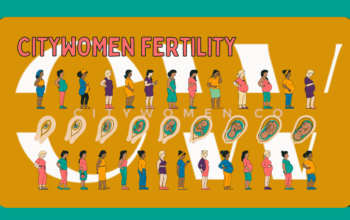
January 26, 2020 at 04:00PM by CWC
I’m a perpetually-single-but-never-actually-single individual who alternately uses my therapist as a professional psychologist, best girlfriend, oracle, dating profile evaluator, horoscope reader, and more when it comes to navigating the dating world. Though I’m ostensibly in therapy to work through past trauma and navigate the anxieties that cripple my work life, sometimes I feel like I pay money for her to tell me what I should be doing about this or that boy.
Of course, I’m doubtful alone. Whether we’re propelled to therapy by a broken heart, a desire to meet “the one” who somehow seems to always elude us, or by a simple, primordial fear of dying alone, many of us seek professional insight into how to achieve the holy grail that is a healthy relationship. If you’re among this group, you might benefit from the free advice offered by four relationship therapists below, where they respond to the questions they hear most often from single folks at various stages along the journey to coupledom (or not).
4 questions single people always ask their therapists and the pros’ answers
1. Why am I failing miserably at using the dating apps?
Laurel Steinberg, PhD, a relationship expert and professor of clinical sexology, tells me this is the question she hears most frequently from single people. “Most often, the reason is that people have unrealistic expectations for the number of efforts it will take to find someone great using the apps,” she says. “When people use apps to play games like pinball or golf, there is often immediate gratification, especially once they have learned the tricks to win points—however, with dating, there aren’t such tricks.” So, she explains, expectations need to be set at a realistic level. “It is very likely that it will take a lot of efforts to find love, and learning to have high frustration-tolerance during the process will go a long way,” says Dr. Steinberg. (Amen, sister.)
2. When should I sleep with someone?
ADVERTISEMENT
ADVERTISEMENTKate Spade Autumn/Winter Sale |
“Single people in therapy want to know when they should sleep with someone,” says sex and relationship expert Tammy Nelson, PhD. “After the first date? The second? Or should they wait for a month or more? Marriage?” Her advice is always the same: there are no rules. “Don’t listen to books written by men for women that list the rules or the inner thoughts of men. They don’t represent all men and they don’t know you. Do what’s right for you and trust your instinct,” she says.
Somewhat relatedly, Dr. Nelson tells me that single people also tend to want to know if their desire for a certain kind of sex or amount of sex is normal. “I tell them there’s not such thing as ‘normal,’” she says. “Normal is a setting on the washing machine.”
3. Why do I keep picking the same type of partner over and over, despite it never working out?
My therapist personally stays awash in my money thanks to this question, which has been a recurrent theme of our sessions. Couples therapist Mary Kay Cocharo, LMFT, tells me it recurs in hers, too. “Many single people come to therapy frustrated at the number of times they’ve fallen in love with a variety of partners only to find that in the end, the reason for the breakup is the same,” she says.
Who we are attracted to/fall in love with is complicated; however Cocharo says we can find a lot of clues hiding in the earliest parts of our lives. She’s learned that as children, we learn to adapt to the emotional space created by our parents or early childhood caretakers in order to survive its unique challenges. “Later, as adults, each individual will unconsciously attract and fall in love with a partner who exhibits all of the positive aspects of childhood,” she says. “Under the influence of a cocktail of chemicals and hormones, our brains lead us into love.”
Unfortunately, however, those chemicals wear off after a few months, and then our lovers tend to exhibit many of the negative and painful aspects of childhood. “It is usually at this stage of discovery that the power struggle begins and the relationship ends,” she says. “And because we are literally wired for connection, we’ll go out and try again, possibly with the same results.”
To avoid this fate, Cocharo tells me she tries to help single people gain insight into their childhood adaptations as well as the damage they’re trying to heal through romantic partnership. “This newfound awareness can help them to consciously choose another type of partner—one better equipped to fill their emotional needs and engage in a satisfying love relationship,” she says.
4. How do I prevent old relationship mistakes or patterns from happening again?
On a similar note, Erika Moreira, LMFT, says she’s often asked how to step outside of recurrent relationship patterns. “Whether these habits or mistakes are happening on a conscious or unconscious level, the first step in disrupting a destructive relationship pattern is bringing it to light,” she says. “If, for example, someone has a habit of rushing into a relationship—prioritizing the relationship over everything else—I would encourage them to simply notice and name these moments when they come up and start to get curious and invite some compassion toward these old habits.”
You might ask yourself, she explains, how the old habit is currently serving you, what it’s helping you to avoid, and how it might prevent you from attaining the type of relationships you actually want to have in your life. “Naming old relationship mistakes or habits creates space for an individual to exercise more choice instead of allowing these old relationship habits to take over,” she explains.
Can’t figure out how to make it last? Try taking your cues from the world’s oldest couple. Queer Eye’s Karamo Brown has some pretty clutch relationship advice, too.
Author Erin Bunch | Well and Good
Selected by CWC

ADVERTISEMENT
ADVERTISEMENTUp to 30% off Gift Sets |







